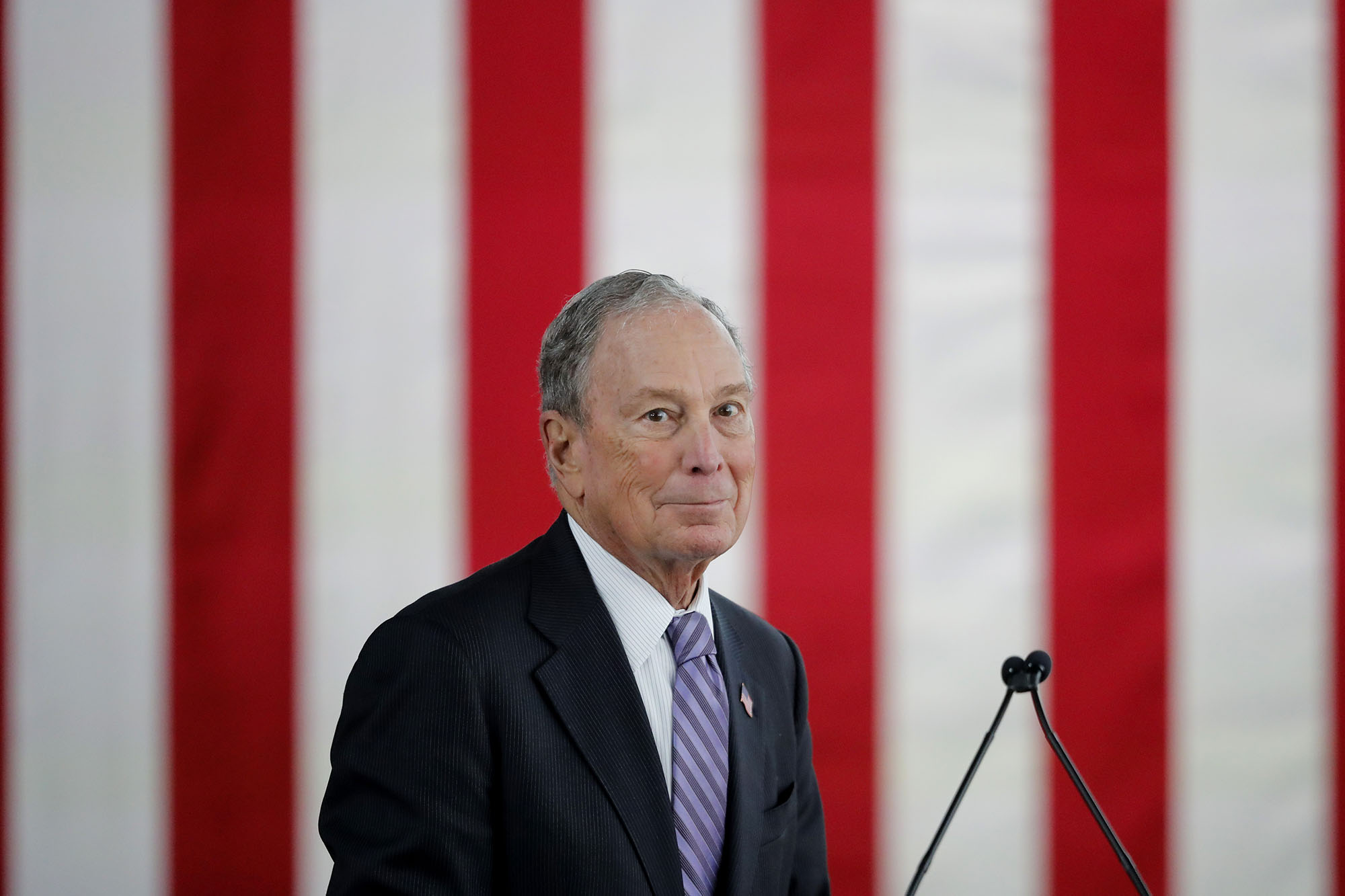Michael Bloomberg has taken Andrew Yang’s place as the cryptocurrency candidate

Michael Bloomberg has unveiled a stance on cryptocurrency policy, making the businessman and former mayor of New York the only active Democratic presidential candidate to directly address the topic.
He’s got a plan for that: As US president, Bloomberg would “work with regulators to provide clearer rules” for cryptocurrency users and businesses, according to a new campaign document describing his plans for financial industry reform. “Cryptocurrencies have become an asset class worth hundreds of billions of dollars, yet regulatory oversight remains fragmented and undeveloped,” the document states. It says that Bloomberg would seek clarity on hot-button issues including digital token sales, consumer protection, requirements for financial institutions that hold digital assets, and taxation of cryptocurrencies.
Vaguely regulated: For years, cryptocurrency enthusiasts and industry advocates have called for the federal government to answer a number of important questions. When is a token sale a security sale? What measures should cryptocurrency exchanges and other financial institutions be required to take to protect their customers’ digital money? And there is all sorts of confusion around the issue of taxation. Some have argued that when it refuses to clearly answer these questions though new regulations or laws, the government risks losing innovative companies to other markets.
“Healthy competition”: Bloomberg seems to agree that a lack of regulatory clarity is holding back innovation: “For all the promise of the blockchain, Bitcoin, and initial coin offerings, there’s also plenty of hype, fraud, and criminal activity.” The campaign says its focus on crypto is part of a larger emphasis on innovations that can provide “healthy competition” in the financial services industry.
Crypto, the campaign issue? Cryptocurrency still has relatively few users, but as Bloomberg notes, hundreds of billions of dollars are at stake. Besides that, Facebook and other technology companies are considering issuing their own digital currencies, raising questions that policymakers—and possibly the next US president—will need to answer about the future of money. Andrew Yang, who recently exited the race, had made a similar promise to seek clarity from regulators. Donald Trump, meanwhile, has spoken out only once about crypto since he’s been in office, tweeting in July that he is “not a fan of Bitcoin and other Cryptocurrencies, which are not money, and whose value is highly volatile and based on thin air.”
Keep up with the fast-moving and sometimes baffling world of cryptocurrencies and blockchains with our weekly newsletter Chain Letter. Subscribe here. It’s free!
Keep Reading
Most Popular
Large language models can do jaw-dropping things. But nobody knows exactly why.
And that's a problem. Figuring it out is one of the biggest scientific puzzles of our time and a crucial step towards controlling more powerful future models.
The problem with plug-in hybrids? Their drivers.
Plug-in hybrids are often sold as a transition to EVs, but new data from Europe shows we’re still underestimating the emissions they produce.
How scientists traced a mysterious covid case back to six toilets
When wastewater surveillance turns into a hunt for a single infected individual, the ethics get tricky.
Google DeepMind’s new generative model makes Super Mario–like games from scratch
Genie learns how to control games by watching hours and hours of video. It could help train next-gen robots too.
Stay connected
Get the latest updates from
MIT Technology Review
Discover special offers, top stories, upcoming events, and more.